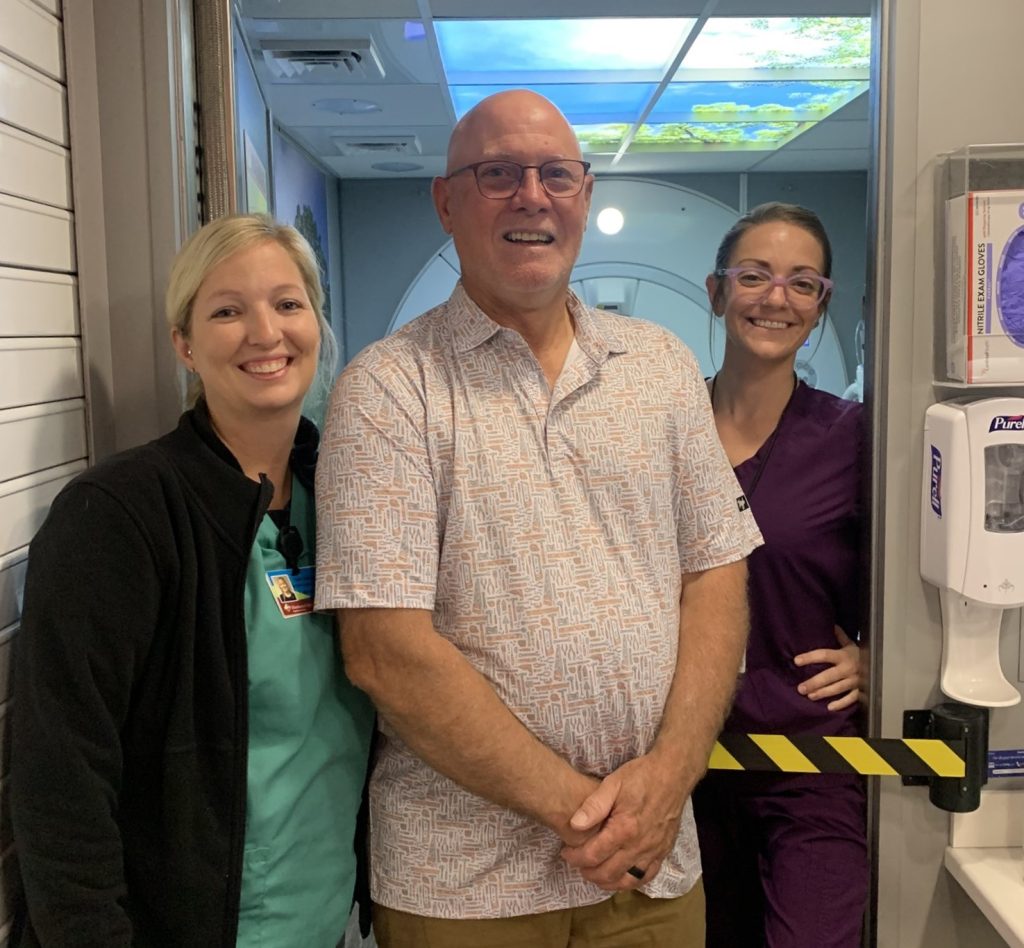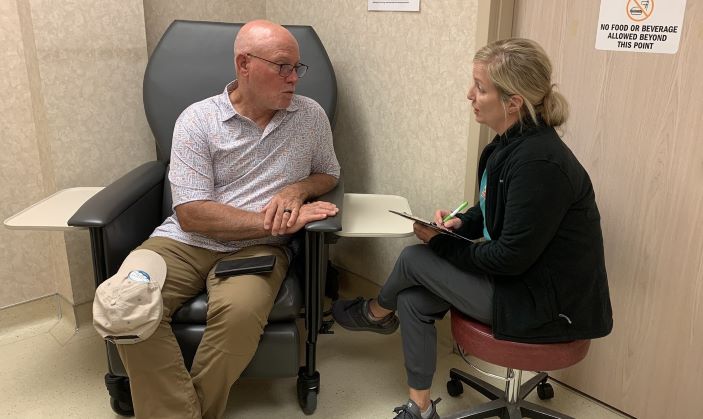The last week in July is recognized as MR Safety Week. In 2025, we observe MR Safety Week from July 20 to 26 to raise awareness and highlight the importance of MRI safety procedures.
Magnetic Resonance Imaging, better known as MRI, is an advanced imaging tool that uses strong magnetic fields to produce clear, detailed images of internal organs and body structures.
At Mankato Clinic, we follow strict safety protocols to keep our patients safe and comfortable during this test. At age 66, Marc Feldbrugge recently had an MRI to check for prostate cancer.
Marc served proudly for 22+ years as a Seabee in the Navy’s Construction Battalion. He also holds a degree in athletic training from Minnesota State University, Mankato. He is no stranger to safety protocols or MRIs; this was his fourth MRI.
“They did their job with care and professionalism making a positive result for me. Without that kind of dedication, I would have questioned the whole process. When we have any procedures done, we put our trust in the hands of somebody else,” he says.
Since the MRI scanner uses a powerful magnetic field, one safety check is to ensure patients have no metal on or in their bodies. For instance, patients are not allowed to wear piercings and jewelry. Patients’ medical devices and implants are also closely reviewed.
“MRI safety is critically important due to the powerful magnetic fields and radiofrequency (RF) energy used during scans. Ignoring safety protocols can lead to serious injuries, equipment damage, or even death,” Dani Hillesheim, Registered Technologist, MRI Manager.
Marc scheduled an MRI after his annual visit with his primary care provider, Dr. Mitchell Heun, who referred Marc to Mankato Clinic Urology and Leann Steffensmeier, APRN, CNP. Signs of prostate cancer were present so an MRI was recommended for a better look.
The MRI technologist called Marc to begin the safety protocols. Marc has a smart knee, a knee replacement implant that tracks range of motion, step count and walking speed, and transmits the data to an app on his phone and his care team.
Marc’s knee is made by Zimmer Biomet, but the data collection and transmission is controlled by Canary Medical. The focal point of the safety issue was the computer chip that collects and transmits data. How much heat could it absorb?
The MRI team worked together with Marc to get all the details needed to ensure that an MRI was safe. It was critical for the Mankato Clinic team to know the specific absorption rate – the amount of radiofrequency energy the smart knee system could absorb. After hours of research and many phone calls between Mankato Clinic technologists, Marc, Canary Medical and Zimmer Biomet, the MRI team received a clear answer.

Marc Feldbrugge joins Dani Hillesheim, Registered Technologist, MRI Manager, in the safety zone of the MRI Mobile Unit. Miranda Wolf, Registered Technologist, is in the MRI scanning room.
The day before the MRI was scheduled, Marc got the call from his Mankato Clinic MRI technologist who said: “We are good to go. We have the numbers we need. We can do this.”
When Marc checked in for his appointment the next morning, an MRI technologist reviewed the safety checklist and gave him a gown. Before entering the MRI room, the team scans the patient with a handheld ferro magnetic detector as a final check for metal objects.
During the MRI test, the patient lies on a scanning table that slides into the tube-shaped machine. Our machine offers the largest opening on the market. Light, sound and aromatherapy can make patients more comfortable during the scan.
Patients let the technologist know what type of music or artist they would like to listen to during the exam. The machine can be noisy, and music can be relaxing. Marc’s music choice was classic rock.
“It’s a generational thing,” he said.
After a safe and successful MRI in the morning, Marc received a call from Leann in Urology the very same day. He received the good news that he did not have prostate cancer.
He had two words: “Thank you.”
Learn more about the MRI department at Mankato Clinic.
Mankato Clinic is proud to participate in MR Safety Week, which honors the memory of 6-year-old Michael Colombini, whose tragic death in a 2001 MRI-related accident serves as a reminder of the critical importance of MRI safety. Mankato Clinic is dedicated to maintaining the highest standards of patient safety.

